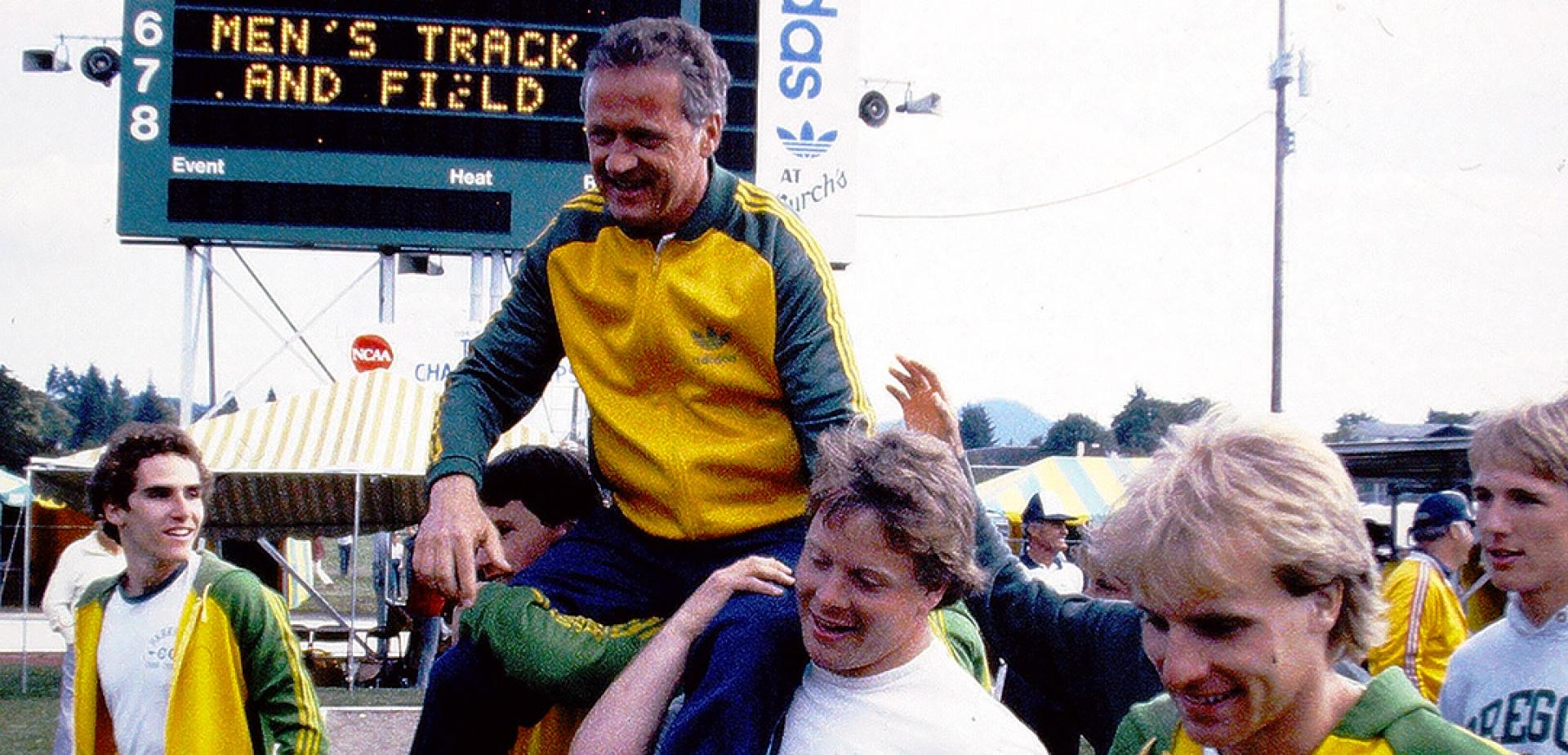Celebrating the life and legacy of Bill Dellinger
By Philip Levinson, BS ’90 (communications)
When you walk through Oregon’s athletics facilities—whether it’s the new Hayward Field or the redesigned Matthew Knight Arena, the beautiful track offices at the Bowerman Building, or the state-of-the-art indoor football practice facility under construction next to Autzen Stadium—you see the vibrant pageantry and can feel the energy of University of Oregon Athletics. This splendor and prominence of Duck sports today seems to have little to do with the unpretentious legacy of Oregon’s renowned Hall-of-Fame track and cross-country coach and Olympic runner Bill Dellinger, who died in June at age 91.
After all, before retiring 27 years ago, much of Dellinger’s coaching was done far from the spotlight: quietly holding the stopwatch, timing his runners at Amazon Trail, or at the classic faded gold track at pre-refurbished Hayward Field. As a former Olympic athlete himself, his training grounds were the hills of Eugene or the streets of his hometown of Springfield, where he would run solo or with a select few teammates. Soft-spoken, understated, and quietly confident—that was Dellinger. Yet, his long-term impact on UO Athletics’ success speaks many volumes more than he liked to do himself.
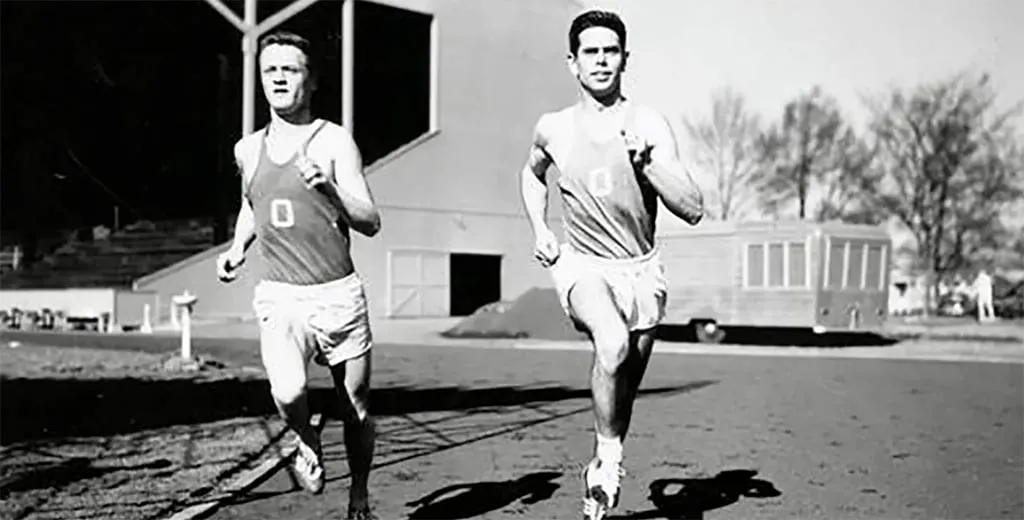
Distance runners and NCAA individual champions Bill Dellinger (left) and Jim Bailey running at Hayward Field in 1955, one year before both became Olympians.
Dellinger's patient approach with walk-ons
There were many celebrated athletes who ran for Dellinger at Oregon, including Matthew Centrowitz, Sr., BS ’86 (human development and performance), Rudy Chapa, BA ’81 (management), Alberto Salazar, BA ’81 (marketing), Jim Hill, BS ’84 (finance), Bill McChesney, Jr., and the legendary Steve Prefontaine, BS ’74 (broadcast communications), each of whom won NCAA titles, set records, or became Olympians. But behind these headliners were unheralded athletes who began as walk-ons and yet ended up flourishing. This latter group added significantly to Dellinger’s best Oregon teams and punctuated his coaching excellence and patient mentorship.
These walk-on athletes included future Olympians Danny Lopez, BA ’91 (leisure studies and services), a transfer student from an Arizona community college, and Art Boileau, BS ’79 (marketing), whom Dellinger discovered in an Oregon PE class.
“I loved Bill because, with his military background, he was not one of these touchy-feely guys,” said Boileau, alluding to Dellinger’s U.S. Air Force service after graduating from Oregon with his bachelor’s degree in 1956. “Bill respected people if they were out there and training seriously—even walk-ons. Then he would make room for you.”
Another walk-on runner, Dan Nelson, BS ’87 (journalism), won an NCAA title in the steeplechase and made back-to-back US World Championship teams in the 1990s.
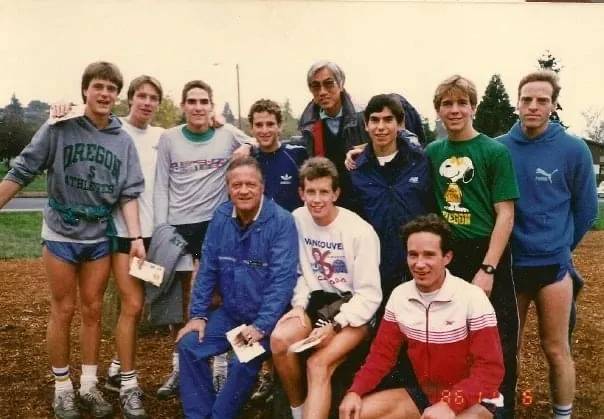
Bill Dellinger at Amazon Trail with his runners, a unique mix of both celebrated and walk-on athletes.
“I grew up in Baker City, and I wasn’t highly recruited,” said Nelson. “I can still remember the day when my mom picked up the phone. She said, ‘Bill Dellinger is on the line for you.’ He then said to me, ‘Hey, fella, would you like to run at Oregon?’”
This prescient and persistent mindset was emblematic of Dellinger’s coaching style, particularly in coaching his runners to steady improvement over months and years. After all, Dellinger was a Springfield High School grad, who started out coaching at Thurston High School. He opportunistically took his first job at Oregon coaching the field events under his former coach Bill Bowerman, as Dellinger’s longtime assistant track coach John Gillespie insightfully points out.
“As a coach, Bill always had the ability to be patient,” says Pat Tyson, BS ’73 (general social science), a successful walk-on runner and now the head men’s track and field and cross-country coach at Gonzaga. “Bill was blue collar. He always knew that it’s the long haul, not the short haul. Bill gave us a long leash. He did not over-coach us. You had to be a self-starter. He made things very simple. He worked us hard, and we weren’t afraid of it.”
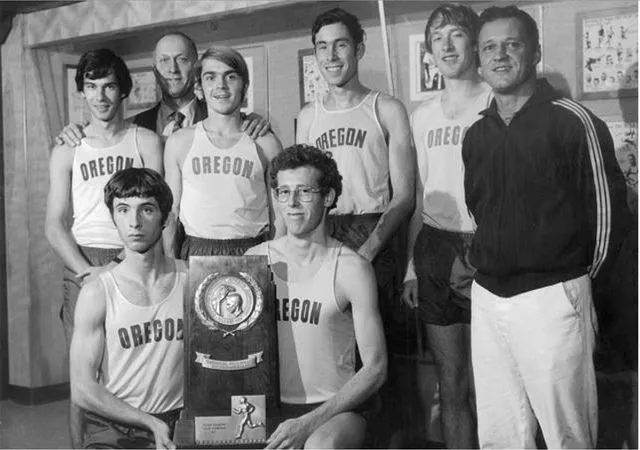
Members of the 1971 Oregon men's cross-country team with their NCAA trophy. Those pictured include Bill Dellinger (far right), Pat Tyson (lower left), along with Bill Bowerman (second from left and furthest back), and Steve Prefontaine (third from left).
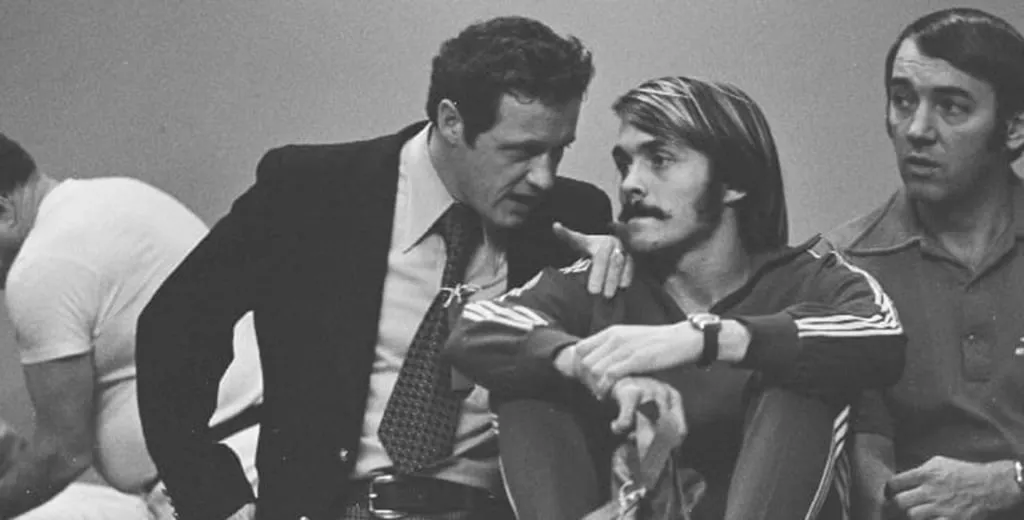
Bill Dellinger talks with Steve Prefontaine.
Photo credit: Jeff Johnson
Dellinger and Prefontaine: Olympians who shared a unique bond
Tyson competed on Dellinger’s first NCAA title-winning team, the 1971 cross-country unit that included Steve Prefontaine. Pre won the race—one of his seven individual NCAA titles under Dellinger.
Dellinger’s judgment and adaptability, one of five key training principles he touted, are evident in how he recruited and then coached Prefontaine at Oregon starting in 1969. Bowerman led the Oregon track teams through 1972, but the day-to-day responsibility for coaching Pre belonged to Dellinger. The two shared a truly unique bond and friendship built on tremendous mutual respect.
When the 1972 Olympics in Munich were tragically disrupted and suspended due to terrorism, it was Dellinger who took an agitated 21-year-old Pre out of the Olympic Village to reset himself. The Air Force veteran calmed his young athlete down to get him mentally prepared for the soon-to-be rescheduled 5,000-meter final. Pre ended up running courageously in an epic race, narrowly missing a medal.
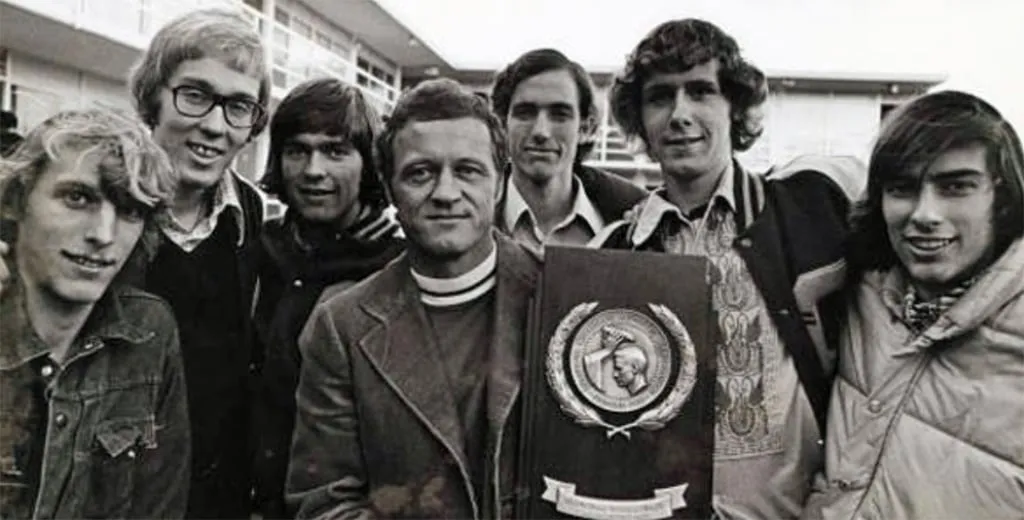
Coach Bill Dellinger after winning his third NCAA team championship in four years with his 1974 cross country team (from left to right: Bob Hensley, Lars Kaupang, Paul Geis, Bill Dellinger, Dave Taylor, Gary Barger, and Terry Williams).
Dellinger 'changed my life forever’
Dellinger’s savvy and consistent leadership continued for nearly three decades at Oregon, bringing ongoing success. A career highlight was the 1984 men’s track team, which won the NCAA team title as underdogs in dramatic fashion at Hayward Field. Dellinger’s team included a unique combination of highly-touted and under-the-radar athletes, including eventual Olympic Gold Medalist Joaquim Cruz, class of 1985, and future Olympians Brian Crouser, BS ’86 (community health) and Ken Flax, BS ’87 (psychology). Going into the men’s 1,500 on the last day, Oregon held a narrow lead. Dellinger quietly watched Oregon’s two runners toe the line as the packed Hayward crowd roared.
“They started clapping before the start,” said miler Dub Myers, BA ’87 (computer and information science). “I got chills. I couldn’t hear any splits. I tried to read the guy’s lips.”
After winning the 800 the previous day, Cruz then won the 1,500. Myers passed seven runners on the final lap to grab third. Adding these two top-three finishes, Dellinger’s team scored 113 points in the championship meet, an NCAA men’s team track record that still stands. Dramatically and emphatically, the veteran coach now had his NCAA team track title.
This overachieving team was emblematic of their coach—and is commemorated in many celebratory photos featuring Dellinger and his athletes parading around Hayward Field with the trophy, embracing and even drinking champagne. This was a unique display of celebration and happiness that was often contained by the veteran coach.
“I have to thank Bill for being the only coach in America that recruited me . . . Things turned out far greater than either of us would have ever thought,” says walk-on hammer-thrower and eventual NCAA recordholder Flax. “I am so thankful for him spending the ten cents to send me a letter inviting me to walk-on as a hammer thrower at Oregon. That letter changed my life forever.”With his letters, his summer track camps, and his selective but honest words of wisdom, Dellinger changed the lives of all the athletes he coached. In doing so over so many years, he helped elevate UO Athletics to the culture of winning and prestige that it enjoys today.
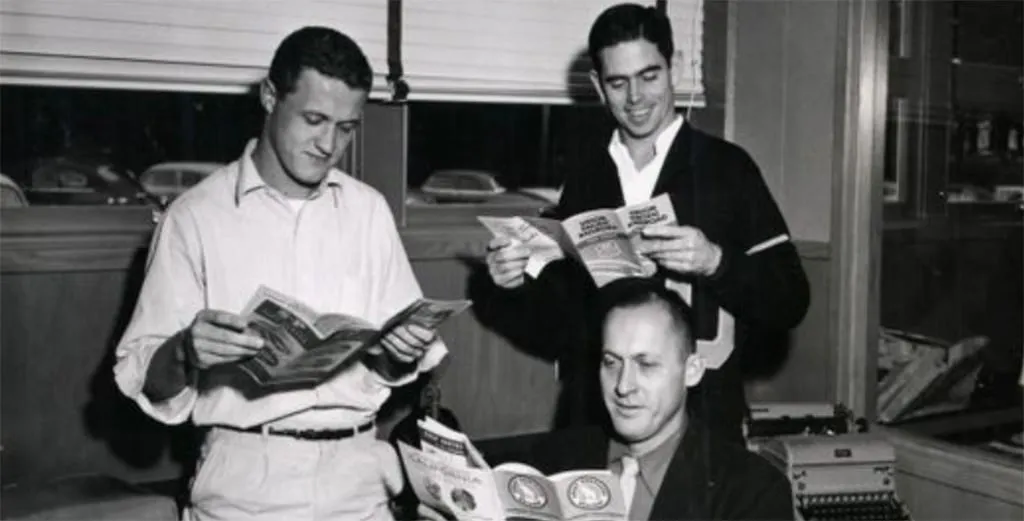
Bill Dellinger (left) poses with Bill Bowerman and Jim Bailey.
From Bill Hayward to Bill Bowerman to Bill Dellinger
Before Dellinger made his mark on Oregon as a coach, he was a standout runner himself under the legendary coach Bill Bowerman, BS ’33 (business administration), MEd ’53 (education). Dellinger won two individual NCAA titles, set two world records and six USA records, and competed in the 1956, 1960, and 1964 Olympic Games in the 5,000. True to his understated style, he came out of athletic retirement in 1963 before winning the bronze medal in Tokyo in 1964. Dellinger was the first of several greats to run under Bowerman—and set the stage for other exceptional Men of Oregon, including Jim Bailey, BA ’58 (business administration), Prefontaine, and Phil Knight, BBA ’59 (accounting).
Bowerman tapped Dellinger to serve as his assistant coach in 1967, before elevating him to head cross-country coach in 1969. When Bowerman retired as head track and field coach in 1972, Dellinger was the clear choice to succeed him, just as Bowerman was the clear choice to succeed another Oregon coaching legend—his own coach, Bill Hayward. The common thread connecting these three coaches was unwavering fearlessness, determination, and intelligence. Dellinger would go on to stand out as the only person ever inducted into the Collegiate Track and Field/Cross Country Athlete Hall of Fame as both a coach and an athlete.
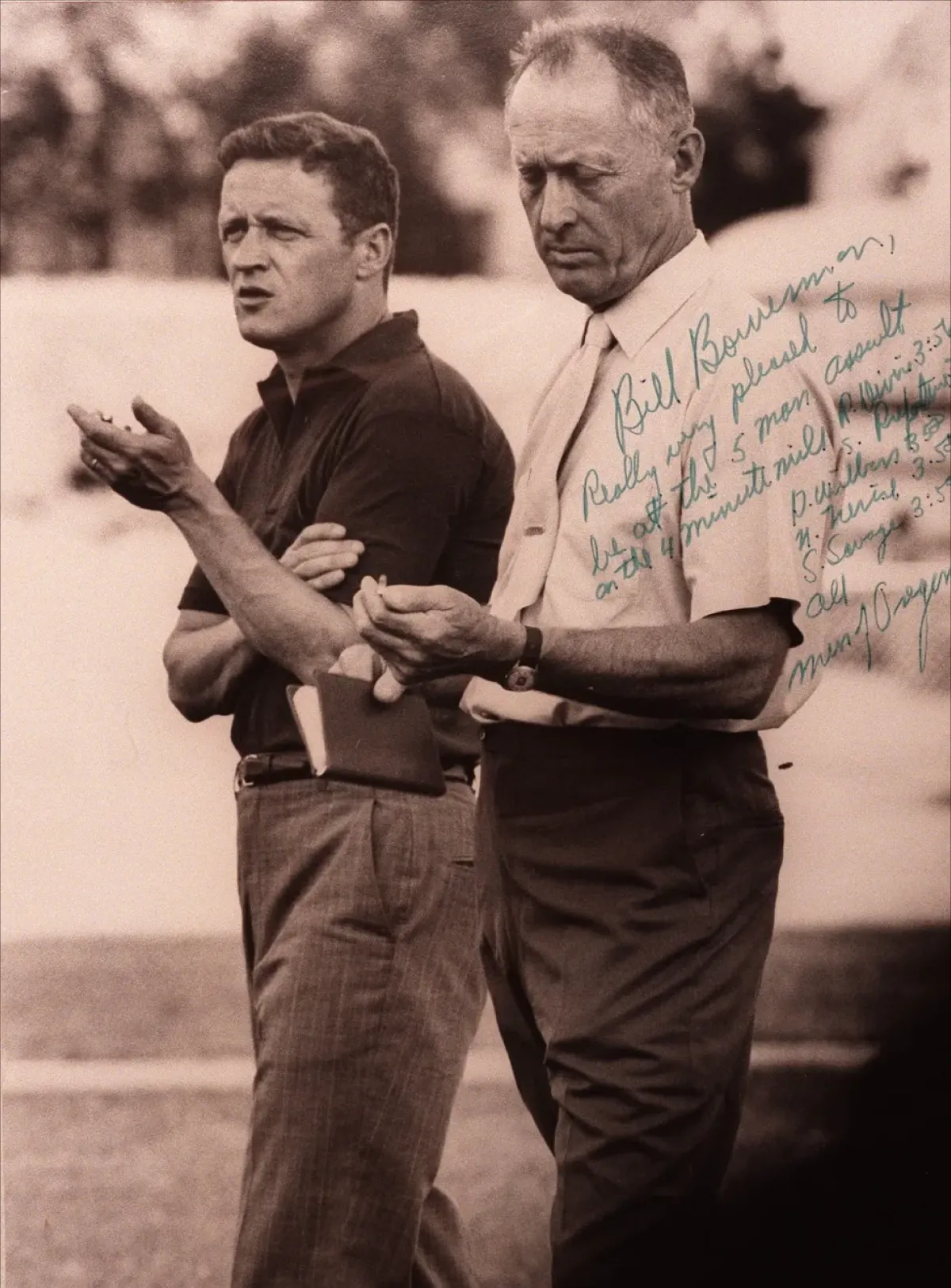
Bill Dellinger coached under Bill Bowerman, before taking the helm as head cross-country coach in 1968 and as head track coach in 1973.
Dellinger’s coaching record, including 29 years as Oregon’s head cross-country coach and 25 years as head track coach, featured five NCAA team championships, as well as coaching numerous athletes to individual NCAA titles, American records, and Olympic berths. His 1998 retirement concluded an unbroken track and cross-country coaching lineage of 94 years with renowned Oregon coaches named Bill.
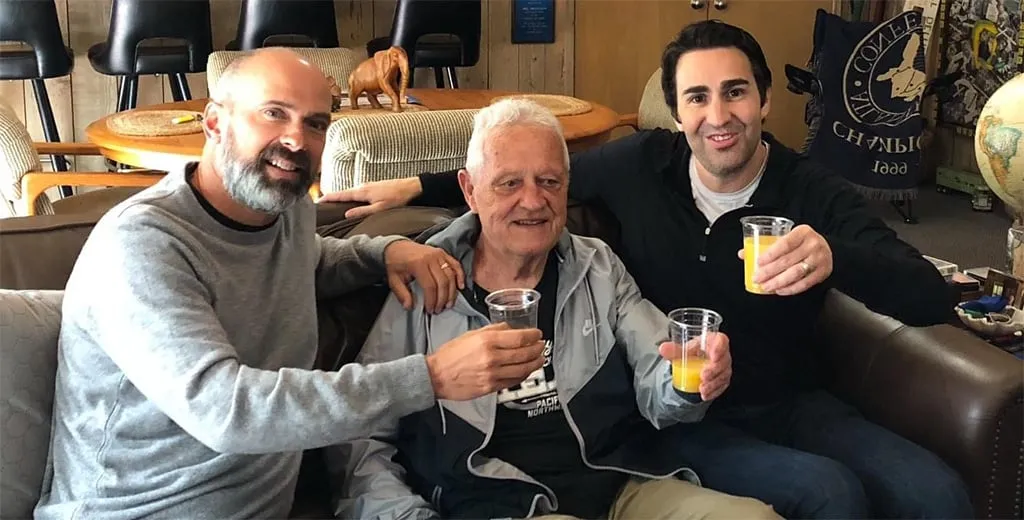
Dellinger welcomed many of his former athletes to his home in recent years, including walk-on runners John Truax, class of 1988 (left), and Philip Levinson, BS ’90 (right).
Embodying excellence & "The Oregon Way"
For dozens of years, while other Oregon sports often fought for relevancy and struggled to achieve winning seasons, Dellinger helped elevate UO Athletics with long-term track and cross-country excellence. He coached patiently, intelligently, and relentlessly—exactly the way he, himself, was coached. And he did it with a unique mix of humility, savvy, and fearlessness, which now embodies "The Oregon Way."
“Bill Dellinger is a true Oregon legend who played a significant role in helping build the University of Oregon into a national track and field powerhouse, shaping generations of student-athletes, and elevating the entire athletics department through his leadership, passion, and championship standards,” said Rob Mullens, UO athletic director.
Indeed, as the UO begins a new academic year and prepares for another prominent and acclaimed football season, the Duck community pauses to celebrate one of the most successful and yet unsung leaders in university history. We say thank you to a true Oregon hero, star athlete, and legendary coach and teacher, who consistently achieved and inspired greatness. Bill Dellinger certainly helped make today’s athletic success at Oregon possible, and he just as certainly would never accept credit for it.
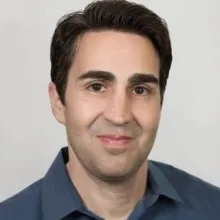
About the Author
Philip Levinson, who ran at Oregon for Bill Dellinger as a walk-on for three years, has published business and technology articles in TechCrunch, Business Insider, InformationWeek, and TheNextWeb. He has also written several track and running articles, including one on Roger Bannister and another on Bill Dellinger in 2024 commemorating his 90th birthday.


